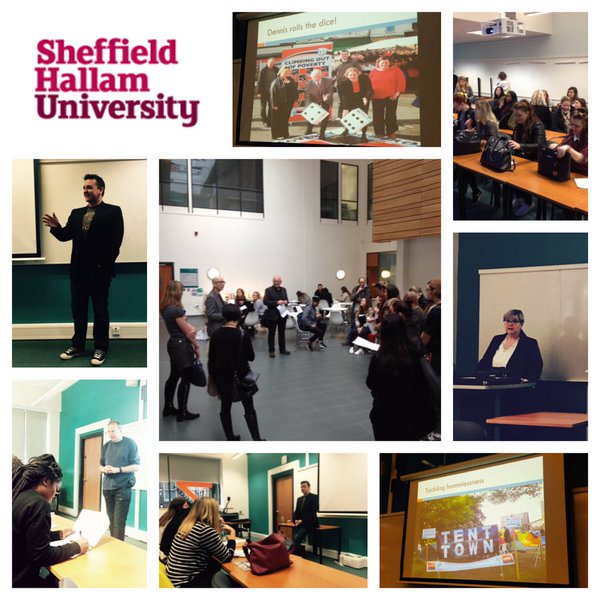Lessons from the PR Specialists
About the author
Our guest authors are what make PR Place such a vibrant hub of information, exploration and learning.

This is an article by Liz Bridgen
Sheffield Hallam University’s PR Specialists event earlier this month could have been styled as a ‘Variety Show’.
It showcased three very different types of PR from three practitioners who had as little in common as (to complete the variety show analogy) a ballerina, an opera singer and a conjurer.
But despite their differences the basic principles of their profession – attention to detail, understanding the media and knowing their audiences – stayed constant.
Giving Sheffield Hallam students a rollercoaster ride through the worlds of PR were Tracy Holmes from Rotherham Metropolitan Borough Council , who gave a harrowing account of running a comms department under fire from a hostile public and media; and Colin Hampton of Derbyshire Unemployed Worker’s Centre who showed how a bit of chutzpah and lots of good ideas goes a long way towards grabbing national media attention for decidedly ‘unsexy’ subjects.
Meanwhile, CIPR 2016 president-elect Jason MacKenzie gave an account of his life in PR, his experiences of running a successful comms agency, and the lessons he’d learnt on the way.
And these are the ‘baker’s dozen’ of lessons that I (and I hope that our students) took from the event.
- People come first
- Some organisations are keener on reputation management than looking after their customers. You should never forget that you’re dealing with people.
- If your organisation is under attack by the public as well as the media, make sure that employees know how to respond to a hostile public. And above all, look after your staff as they are facing incredible pressures both at home and at work.
- Make sure that your audience understands your messages – test them and talk in your audiences’ language. (Colin Hampton told a good story about this. He was handing out leaflets announcing a campaign against austerity but the people who got the leaflet didn’t know what austerity was) .
Managing the media – on and offline
- If someone is telling untruths about an organisation it’s the responsibility of the organisation to put it right. No one else will do it.
If you have a good idea and it’s working, flog it to death. - Don’t expect the media to come to you; sometimes you’ve got to go to London where the media are.
- Visual ideas are very important when trying to get media coverage but don’t forget that the media like stories about people – back up any stunts or media events with case studies about real lives.
- Organisations who won’t talk to the media play into the hands of people who will – the media will go to your opponents and get their version story from them.
Life lessons
- Keep good records – log all media calls, monitor media, keep notebooks . You never know when you’re going to need them.
- Be nice to people on the way up and on the way down – you never know which way you’re going. It reaps dividends.
- Don’t go into business with people you don’t like, trust or respect
- Don’t be afraid to ask people for things you need – people are mostly incredibly kind (how do you think we put on this event? We asked people!)
- Don’t lie. Tell the truth
You can also follow the event on Twitter as it unfolded at #SHUPRSpecialists